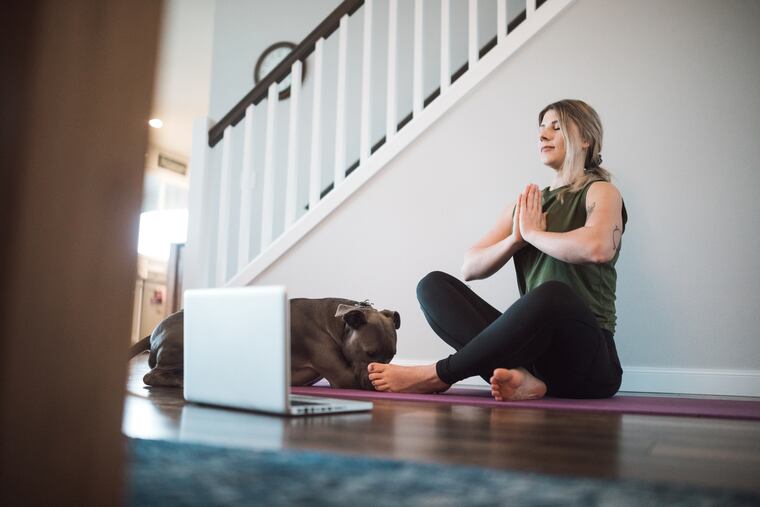Meditation can help calm your pandemic worries. Here’s how to start a practice at home.
If you're new to meditation and mindfulness practices, Michael Baime, director of the Penn Program for Mindfulness, shared tips for how to get started at home and common pitfalls to avoid.

As the Philadelphia area moves toward reopening after weeks of stay-at-home orders to contain the spread of COVID-19, one thing is clear: This summer will look much different than in years passed.
Though we will soon be lifting many restrictions, our routines will still be disrupted in all sorts of ways, and there is much we don’t know about the future. Will there be a second wave of COVID-19 cases? When will a vaccine be available? Will schools open in the fall?
Take a deep breath. These questions could go unanswered for months. That’s why it’s important right now to focus on improving your mental health and learning how to accept the uncertainty of the future. Meditation is a great way to do that.
“Because we aren’t able to give ourselves a break in the way that we normally would, such as by going out to a restaurant, now is a good time to spend some time with yourself and use that as a way to support you,” said Michael Baime, a physician and director of the Penn Program for Mindfulness in the Perelman School of Medicine at the University of Pennsylvania.
» READ MORE: Missing touch in your life? So are we. Here’s what to do about it.
If you're new to meditation and mindfulness practices, Baime shared tips for how to get started at home and common pitfalls to avoid:
Take small steps. To start, aim for three minutes every day for a week to just be present. “Don’t try to do anything or change anything about how you feel,” Baime said. Instead, use this time to connect with yourself. One way to do that, Baime said, is to let your attention rest with the sensations of your breath. He cautioned that your mind will likely wander during this time. But, he said, “the trick to doing it successfully is to not fight that.”
» READ MORE: Stress can change the way we breathe. These exercises can help.
Set realistic expectations. Many people have expectations of meditation that are different from what really happens. “You won’t dissolve into white light or reach unconditional bliss,” Baime said. Meditation is about feeling how you are. “With practice, you get more comfortable with that, and it gives you a kind of steadiness in your life,” he said.
Don’t try to change. Avoid trying to make certain thoughts go away or assuming you should feel a different emotion. “That’s a kind of pretending,” Baime said. “Mindfulness is all about being true to what’s actually here, and learning how to hold that with appreciation for how complicated things are and for what you have.” The most important thing, he said, is to be kind to yourself.
Be consistent. “Meditation, like exercise or eating right, is a practice that works through small consistent steps that in the end give you something very important,” Baime said.
If you need help getting started, Baime suggested guided meditation apps such as Headspace — which is currently free for those who are unemployed — or Calm. For a more immersive experience, the Penn Program for Mindfulness will host an online eight-week mindfulness-based stress management program at the end of June. For more information, go to pennmedicine.org.